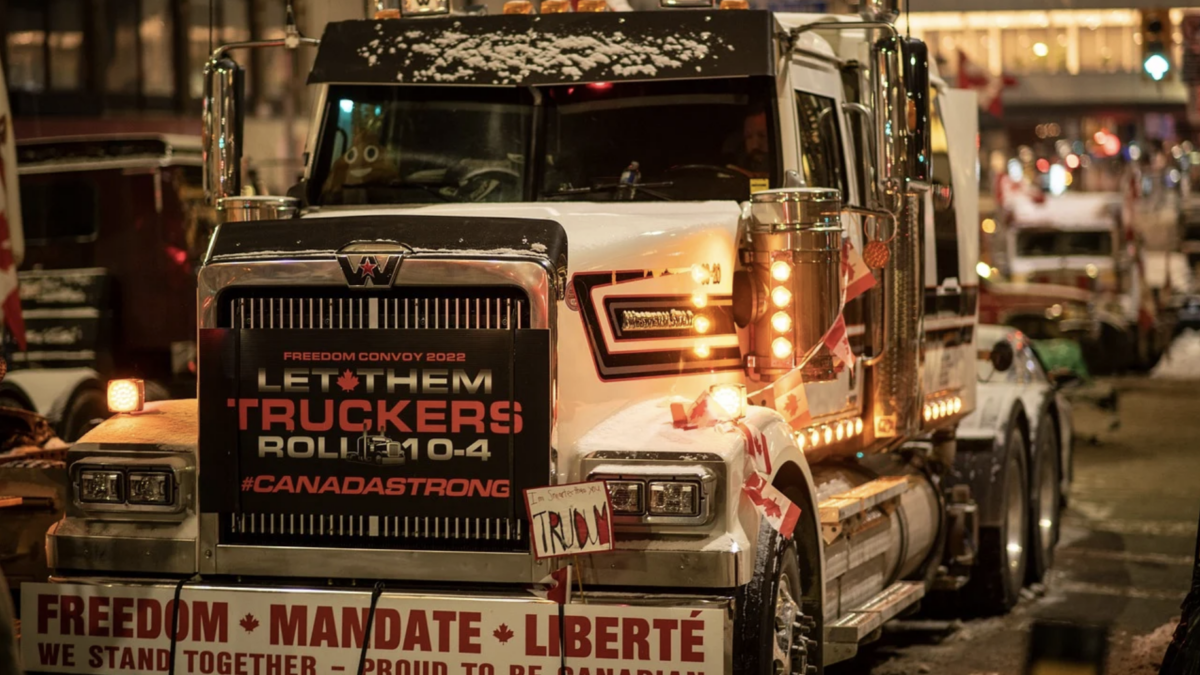
From its earliest days, Canada’s Freedom Convoy has garnered the support of conservatives and libertarians stateside. The American right has applauded the truckers’ demands for personal freedom and individual liberty. These principles, after all, are not only core to the American experiment but to Western civilization more broadly.
State-run media in Canada recently dismissed reverence for freedom as something “common among far-right groups.” In other words, oppose Prime Minister Justin Trudeau’s mandates, and you’re a crazed extremist.
Sadly, this sentiment is not unusual in Canada. According to a new poll published earlier this week, 72 percent of Canadians want the protestors in Ottawa to leave, while 68 percent want the government to sic police or even the nation’s military on them.
Unlike the United States, Canada wasn’t born of a revolution. Canadians didn’t take up arms to secure their political independence and reclaim their inalienable, God-given rights from a tyrannical British monarch.
Instead, the country became a self-governing dominion in 1867 following a vote by the British Parliament. This distinction is not unimportant — it’s critical to understanding the relationship Canadians have with their government and what many are willing to tolerate from their political leaders.
Canada, both culturally and legally speaking, doesn’t have a tradition of robust public discourse nor a particularly firm devotion to free speech. There’s no First Amendment in Canada and Charter protections pertaining to freedom of expression, religion, and conscience have been diminished for years in Canadian jurisprudence. The widely accepted “living tree doctrine” stipulates that Canada’s constitution be interpreted in a socially progressive manner that evolves to fit the day’s fashionable whims.
In practice, this has meant accepting state intrusions on fundamental rights in ways that most Americans would find abhorrent and authoritarian — such as curtailing mobility rights with lockdowns and deeming certain kinds of speech “harmful” and thus illegal.
Since the convoy began, a number of provinces have agreed to drop their public health restrictions. But it appears Canada’s European-style system and centralized approach to governance has now come home to roost.
On Monday — for the first time in Canadian history — the prime minister invoked the Emergencies Act, which gives the federal government tremendous power to treat average Canadian citizens as if they were terrorists. The Wall Street Journal described the move as “one of the most striking responses of a Western government against protests by those opposing Covid-19 vaccine mandates and social restrictions in response to the pandemic.”
Last week, an Ontario court granted a request from the provincial government to freeze millions of dollars in funds raised for the Freedom Convoy on the private crowdfunding platform GiveSendGo. With the Emergencies Act now in effect, financial institutions in Canada will be able to immediately freeze or suspend an account without a court order, according to Finance Minister Chrystia Freeland. These institutions will be allowed to cut off services to those merely suspected of supporting protests the government disapproves of.
It is true the United States has its own problems with little tyrants at every level of American government, but U.S. courts quickly killed nationwide vaccine mandates and testing rules.
Do we have problems with woke capitalism, insane localities and creeping authoritarianism in the private sector? Yes
— Saagar Enjeti (@esaagar) February 15, 2022
But in this country the vax mandate was struck down nationwide, we have courts that would never let this stand (for now), and ofc we have #2A as last resort 🇺🇸
To be clear, what’s happening in Canada is an unprecedented crackdown on speech, dissent, and basic civil liberties. It’s also a reminder that while courageous Canadian truckers have inspired millions around the world, no people on earth defend freedom quite like the people of the United States of America. At least for now.







